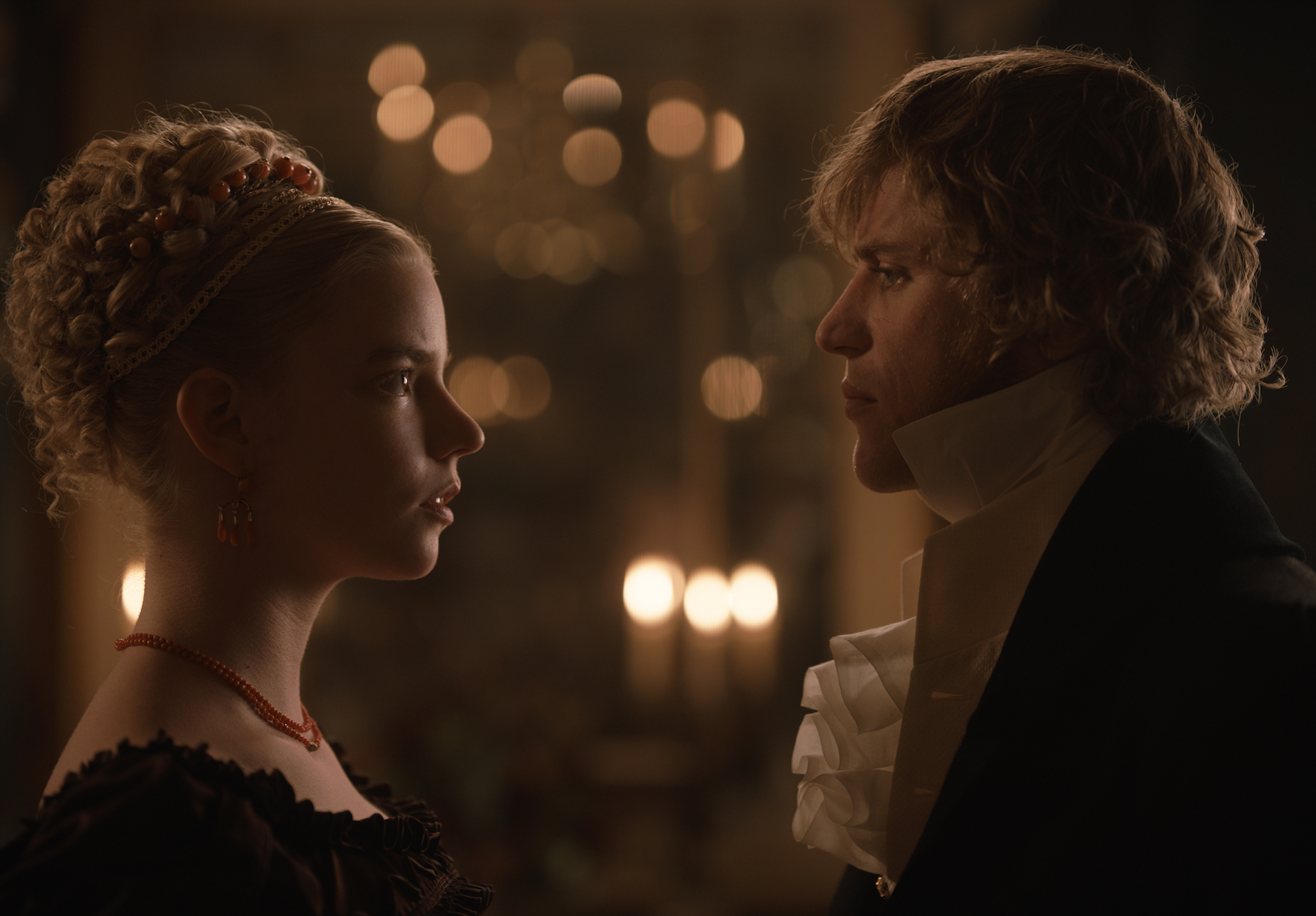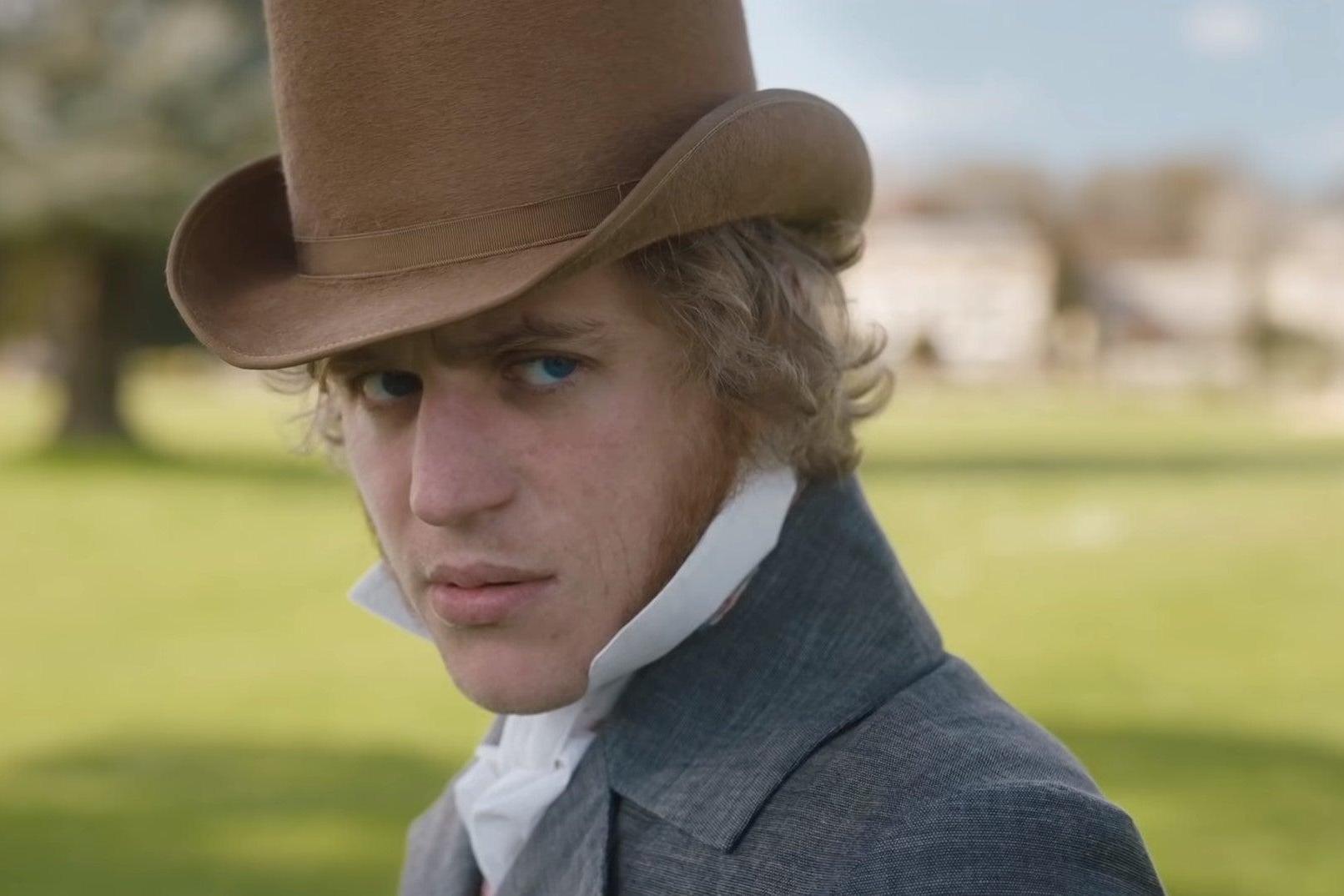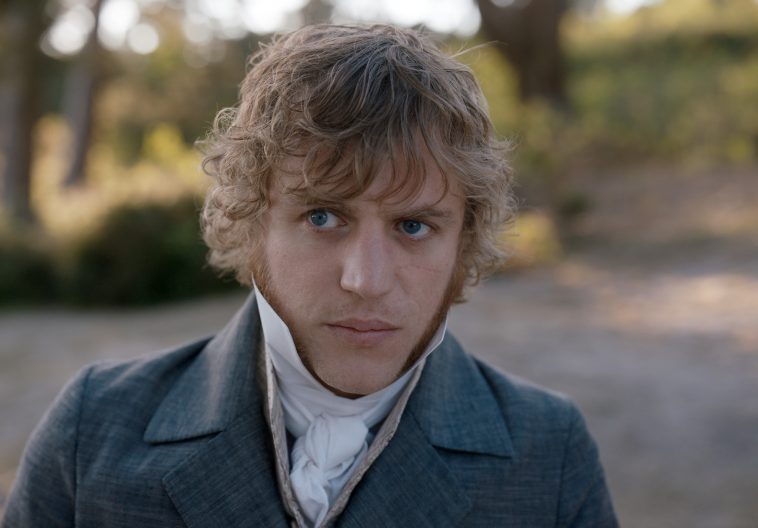Having taken to the stage on countless occasions, either with a guitar in his hand, or on stage performing Shakespeare, it’s hard to imagine creative talents like Johnny Flynn can still be nervous. You imagine those who put so much of themselves into their art are open, unafraid individuals, and yet you remember really, they’re just like us. When we sat down with the actor, when promoting the release of Emma, an adaptation of Jane Austen’s novel, where he plays Mr. Knightley, Flynn told us how he still gets nervous – and why he believes that’s an important emotion to feel.
“I’ve had a few massive panic attacks, either on stage or just before going on stage, mostly for acting stuff,” he said, sipping pensively on his tea. “But now I’ve realised that if you’re nervous it’s good, because it’s potential creative energy. If you’re not nervous, something is wrong, because it means you haven’t got anything important to say.”
We asked whether these feelings occur more so when acting or when performing musically, and he admitted it varies between the two. “It’s completely random,” he smiled. “Some days I’ll be totally fine and other times I’ll be really nervy. But I’ve learnt over the years. It used to be that I got a lot more nervous walking out on stage as an actor and not so much as a musician, and then it flipped for a bit, so it can change. If I’m playing a solo gig I find it quite nice because I know that if I fuck up, or if I stop, or just forget the words, I can just stop and start talking and actually it’s quite nice when that happens, but you can’t do that with Shakespeare. Or at least you’re not meant to! Or if I’m playing a gig with my band that pressure of staying in the flow, most of the time it’s great I can be carried by that, but sometimes there’s a pressure to be within the beat and remember all the words, that can be daunting.”
In Emma what must help with the nerves somewhat, is when playing such a great character, and Mr. Knightley is a fine literary creation, and the romantic interest for the eponymous lead role, played by Anya Taylor-Joy in this Autumn de Wilde production. He explains why he took on the role, and the timeless quality of Austen’s writing.

“Jane Austen is like the progenitor of the modern novel, in a way,” he said. “The way she wrote with such accessibility through her character’s vulnerabilities, and the society that she was a part of and observing in her books, she talks about people on such a personal level. Her characters really know her each other in a profound way and you get a sense for the types of friendships that she might have had as a human being. It’s always useful to reflect on these things and it’s quite rare in storytelling these days to go that deeply into those kinds of friendships and you learn from retelling the story a couple hundred years later that the human heart hasn’t changed in all that time.”
“It’s profound on a social level because she’s a woman in 1815 writing within the confines of being a woman in that time, who doesn’t have any agency or political agency because society has all these rules. So to reflect on that two hundred years later and ask – have we changed? Have we changed enough? Is a really valuable thing to do.”

His connection to the source material goes back to when he was at school, too. “I always loved the novel, I studied it for English when I was doing A-levels and I had a teacher who really loved it and it was his favourite book and he meant a lot to me, and was kind of the reason I got into acting really because he coached me and directed me in plays and stuff, and when we studying text he’d get up and direct them. There’s a literary wit in the books that is hard to adapt onto film but if nothing else it’s a good reason to re-read them to tell the stories. It’s that close observation of people that I think is really beautiful in the novels,” he said.
But why now? The story has been adapted several times before, but what makes the current climate a good time to retell it? Well, as Flynn explains, there’s never a bad time to look back.
“It’s the same reason I love folk music, it ties together all these ideas, you get a sense of lineage through the history of a song, you get a sense for each generation connecting to that song and feeling something different each time it resonates, and I think there’s value in looking at history as well, for that reason. You read a piece of poetry written in Elizabethan England and it resonates with the human heart. Or studying the 30s and the rise of populist political ideas, and that’s having a resurgence now, and to understand how to avoid certain things we could do worse than to look at that stuff and look at ourselves and think, where are we going? How are we going to let this play out? Do we just recycle history? The only way of countering that is to look at history and to look at old stories.”

Flynn’s career is certainly leaning itself more so into the world of acting, and he’s got arguably his biggest role to date coming soon. He’s landed the part many an actor would dream of fulfilling; he’s portraying David Bowie in Stardust. Though while a dream for any performer, it’s not the easiest undertaking, for Bowie was drenched in mystery, part of his allure was the fact nobody quite understood the real him, yet for Flynn, he had no option but to try and get into this mind, and present an accurate depiction of this elusive talent
“That made it hard, to even imagine who he might’ve been,” he said. “The version of his story that we tell is imagining him before fame, before Ziggy Stardust, before he had massive success. To take everything we know about him at that point and look at some of the things he was exposed to at that time, and just see the seeds of that great artist coming together. So it’s not a big sprawling biopic, it’s just a tiny, tiny moment in 1971 when he first goes to America and listens to Iggy Pop and meets Andy Warhol and goes to a Velvet Underground gig, and you just see these different elements coming together. So it was overwhelming but also kind of fun, and it’s an important story to tell, to reach young artists and say, look, everyone starts somewhere.”

“I find myself in a constant state of humble gratitude that we were getting to look at a life like that, and I felt very much that he would’ve been in line with our project, because we’re not assuming anything about him, we’re just imagining what it might’ve been. What I found really thrilling, because I’m quite a different songwriter, but I wanted to know why he thought it was alright to marry French chanson with New York art punk? It’s brilliant that he did, but it’s quite rare to have that level of innovation, but he felt emboldened to do that and create a completely new universe, really.”
So is this a biopic? Flynn seems to think that’s the wrong description, and hopes audiences go in with an open mind.
“I’ve found people to be a bit narrow-minded or judgemental, they’ll apply their experience of another film that they think it might be. I hope people see the film with an open heart, and I think it they do they’ll see that it’s a small film, it’s an art-house film. I’m really proud of it and I’m proud of what we did,” he finished.









Leave a Comment